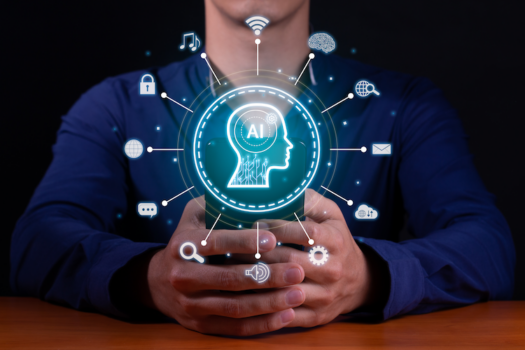
The Supreme Court of New Jersey recently took the first step in regulating how attorneys use artificial intelligence (AI). The key message from the state’s highest court is that while AI technology may revolutionize the legal industry, the old rules governing attorney ethics still apply.
In September, the New Jersey Supreme Court convened the Committee on Artificial Intelligence and the Courts to study the implications of artificial intelligence, particularly with respect to court operations and the practice of law. The Committee is comprised of judicial and government leaders, judges, attorneys, educators, and cybersecurity and technology experts.
On January 24, 2024, the New Jersey Supreme Court published preliminary guidelines, which are intended to inform and assist lawyers in navigating their ethical responsibilities in light of the current and anticipated effects of AI — in particular generative AI — on legal practice. “In furtherance of its responsibility to uphold the highest level of professionalism among lawyers, the New Jersey Supreme Court seeks to balance the benefits of innovation while safeguarding against the potential harms of misuse,” the New Jersey Supreme Court wrote in its Notice to the Bar.
Preliminary Guidelines on the Use of AI by New Jersey Lawyers
In addressing the role of AI in the legal profession, the Committee cited the benefits and risks of the new technology, noting that while AI tools can assist with legal research and writing, it can also “hallucinate” and generate convincing, but false, information, including fake case law. The Committee went on to emphasize thatthe core ethical responsibilities of lawyers, as outlined in the Rules of Professional Conduct (RPCs) remain unchanged by the integration of AI in legal practice, “just as was the case with the introduction of computers and the internet.”
“While AI does not change the fundamental duties of legal professionals, lawyers must be aware of new applications and potential challenges in the discharge of such responsibilities,” the Committee wrote. “As with any disruptive technology, a lack of careful engagement with AI could lead to ethical violations, underscoring the need for lawyers to adapt their practices mindfully and ethically in this evolving landscape.”
The Committee’s preliminary guidance focused on five categories of RPCs:
- Accuracy and Truthfulness: Because AI can generate false information, a lawyer has an ethical duty to check and verify all information generated by AI to ensure that it is accurate.
- Honesty, Candor, and Communication: While the RPCs do not require a lawyer to disclose the use of AI, such use does not provide an excuse for the submission of false, fake, or misleading content. The RPCs prohibit a lawyer from using AI to manipulate or create evidence and prohibit a lawyer from allowing a client to use AI to manipulate or create evidence.
- Confidentiality: A lawyer is responsible to ensure the security of an AI system before entering any non-public client information.
- Misconduct Prevention: Lawyers have ongoing requirements to ensure accuracy (and avoid falsification) of communications with clients and the court.
- Oversight: Law firms and lawyers are responsible for ensuring the ethical use of AI by other lawyers and nonlawyer staff.
What’s Next?
According to the Committee, its preliminary guidelines are intended to assist lawyers in complying with the existing RPCs, which “remain unchanged by the availability and use of Al.” It advised that New Jersey attorneys with specific questions about their own prospective conduct related to the use of AI should continue to seek direction from the Attorney Ethics Hotline at 609-815-2924 or in writing to Court-Use-ofAl. mbx@njcourts.gov.
Additionally, while its interim guidelines are effective immediately, the Supreme Court invited comments and questions on the use of AI in legal practice, including suggestions of potential use cases for lawyers and the courts.
